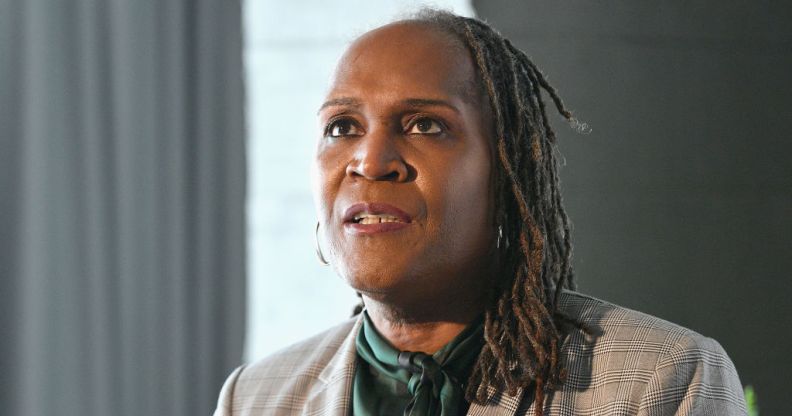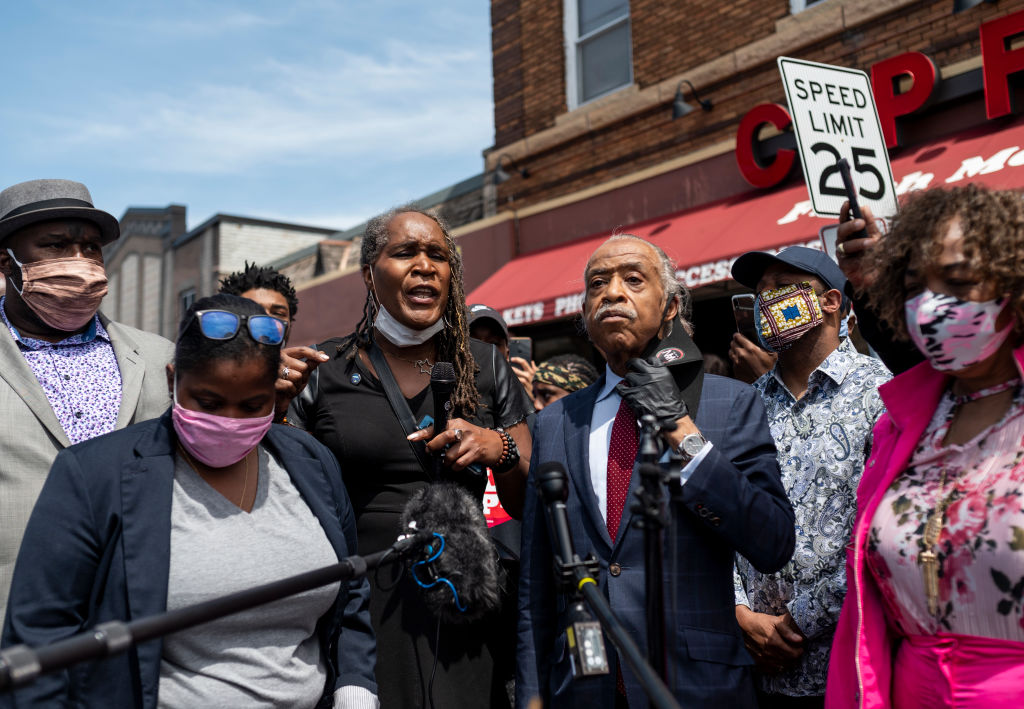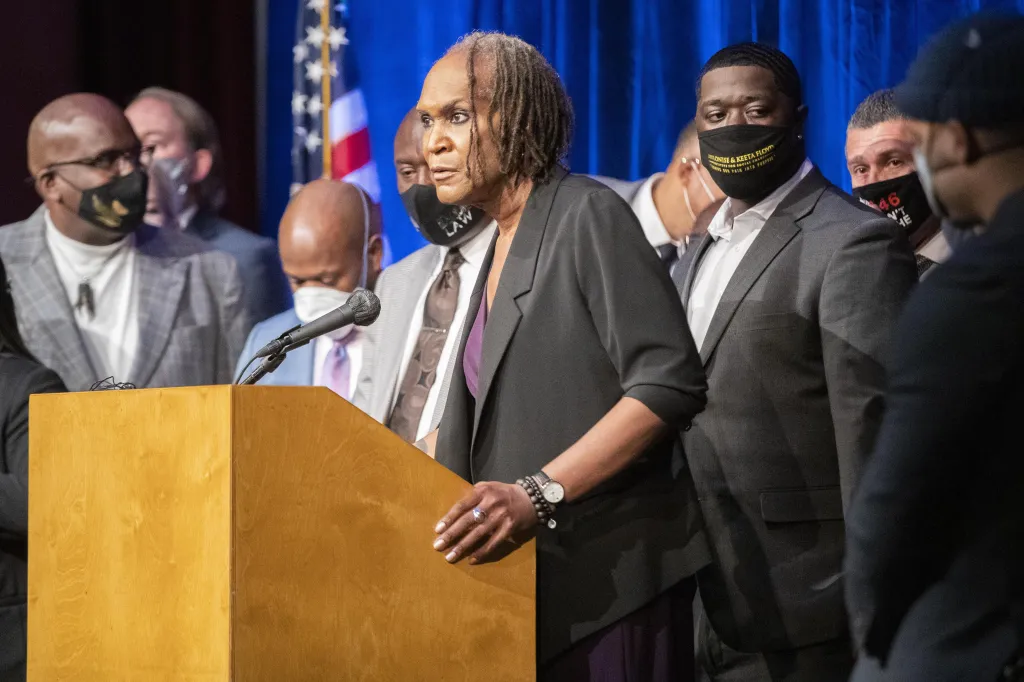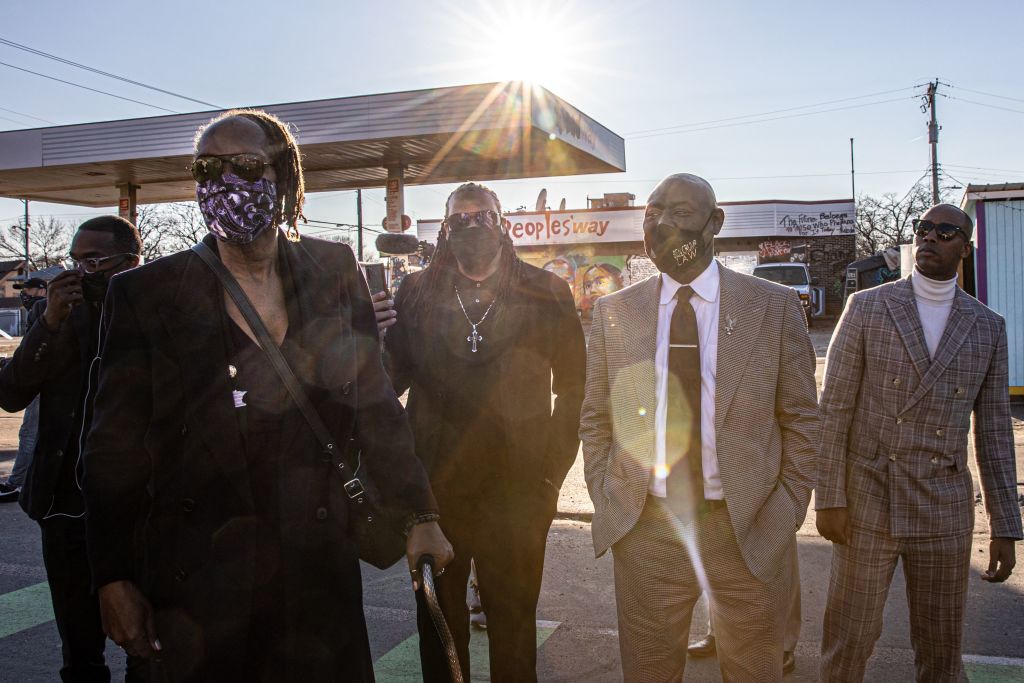Andrea Jenkins: America’s first Black, openly trans elected official on her fight for justice

Andrea Jenkins in 2019. (Dia Dipasupil/Getty Images for New York Magazine)
When Andrea Jenkins first came out in the 1990s – two decades before she became the first Black openly trans woman elected to US public office – she was told to ditch her old life and start afresh.
“There was this mind set, in the therapy world, that if you’re trans you should move to a new community, change your name… but that wasn’t really a good option for me,” she tells PinkNews.
Jenkins had a young daughter who she was, and remains, devoted to. She also had a deep connection to her local community in Minneapolis, where she’d moved to at the age of 18.
“While I did lose some relationships, I still had a lot of networks and connections that were supportive,” she says. “I leaned towards staying in this community that I grew up in, toughing it out and maintaining those relationships, and I’m really glad I did. It has worked out for me.”
Jenkins was already a respected poet, academic and activist when she was elected to the Minneapolis City Council in 2017. The historic nature of her election made national news and increased the platform she’d already built through decades of community work and activism.
That platform would increase again through tragic means in 2020, when one of her constituents, George Floyd, was murdered by police officer Derek Chauvin.
Jenkins’ voice was a memorable in the days, weeks and months that followed. She sang Amazing Grace at a press conference in Floyd’s honour, before calling for racism to be treated as a public-health emergency. She was, and remains, at the forefront of calls for radical change in policing, all the while displaying a quietly determined grace that has been forged over decades.
Jenkins was born and raised on the west side of Chicago in 1961. Her childhood was fairly normal – she’s previously spoken of her “very loving” upbringing in a “hard-working, low-income” neighbourhood, where one of her teachers was the poet Haki Madhubuti. Through him, she found an affinity with the Black arts movement, kick-starting a life-long passion for poetry, art and storytelling.
Minneapolis became home when she enrolled in university, but she suffered a brutal setback when, while presenting as male and living in a fraternity house, she was discovered in bed with another man. She was kicked out and returned to Chicago, where she was forced to explain herself to her mother, coming out as bisexual.
Jenkins went on to marry a woman and had a daughter, settling down into a job as a vocational counsellor. She and her wife divorced, and, aged 30, she came out as a trans woman.
About five years later she got her start in politics, working for the gay Minneapolis councillor Robert Lilligren.
“It was pretty daunting early on,” she says. “ In 2001, I was still relatively early in my transition, I had been out for maybe five years or so. I had challenged myself in certain scenarios and different settings. But it was really challenging thinking about going into municipal government. As you might imagine, there were a lot of white dudes. It was a little scary.”
The experience taught her a lot about her own resilience.
“I was hit by a truck when I was 10 years old. I ended up having to learn how to walk again but I came back and ended up still being a pretty good athlete, so I had exhibited resiliency. But I didn’t really think about it [until coming out].”

A “big part” of her survival, she says, were her relationships. While she was able to maintain some crucial ones, she lost a number within the LGBTQ+ community.
“Early on, there was concern from gay men,” she recalls. “I literally had a friend say: ‘You mean to tell me you’re gonna actually walk around in a dress?’”
There was also pushback from women Jenkins calls “trans-exclusionary radical feminists”.
“There’s still a lot of that conversation today, but it was really prevalent when I came out… you’re imitating women, you’re upholding the male patriarchy, ideas like that. That was really painful because I thought that’s where my comfort zone would be,” she continues.
“Interestingly enough, I found probably the most support in cisgender women. I used to have this hierarchy – it was cis white women, cis Black women and women of colour, white men, then Black men and men of colour.”
That hierarchy continues to exist, Jenkins says, although she believes Black women and women of colour are now broadly “more accepting” than their white counterparts. “We have moved on and there’s all these conversations around intersectionality. And, I mean, there’s still racism, right?”
Among cisgender Black men, however, Jenkins still sees an issue.
“In general, people who push the gender binary, when you encounter those people it makes you think about your own gender,” she says. “And I think that’s a really uncomfortable concept for a lot of men, Black men, in particular.
“It’s super complex. Black masculinity has been consistently under attack, certainly in the United States. So, seeing another Black person, assigned male at birth, exhibiting what society deems as feminine qualities, I think it is seen as somehow further diminishing Black masculinity as a whole.”

Today, Jenkins does a lot of work connecting the dots, speaking to Black communities about trans issues, to LGBTQ+ communities about race, and to “white corporate spaces” about both.
“It’s a huge responsibility, and it’s something I don’t take lightly,” she says. “I understand and recognise that many, many, many times, I’m probably the only trans person a particular person will ever meet. And, and even more specifically, probably the only Black trans woman, so there’s pressure to be a positive representation. And now, being in political office, there’s even more scrutiny. It makes me more thoughtful and cautious and intentional about how I show up.”
Since 2022, Jenkins has been the president of Minneapolis City Council, dealing with everything from “potholes and snow” to housing issues and police brutality.
She’s been at the forefront of efforts to reform the police, and was involved in a bid to abolish the force and replace it with a new department of public safety.
The proposal failed after it was put to voters, but the fight continues. Right now, Jenkins and her colleagues are negotiating a consent decree which she says would “provide some more accountability, some more community oversight”.
She’s “generally an optimistic person”, but police brutality against Black people “seemingly just doesn’t end”. She believes the issues are fundamental – the history of policing is intertwined with that of slavery, after all.

“I sometimes think that probably the best way is to just dismantle the whole system and start all over again,” she says. “However, given the state of the world, that that feels like an impossible thing to do.
“But I will say this: ending slavery seemed impossible and I think we’ve come the closest in human history to doing that now. There still is some human trafficking and some slavery going on, unfortunately, but it has been it has been diminished significantly, particularly as an international industry.
“There are people who never thought that would end, and, seemingly, there are some people who want us to go back and they are working really hard at it.”
Will true progress come about while she’s in office? In her life time, even? Jenkins seems unsure. But she’s determined to keep fighting – for Black rights, trans rights, and equality across the board. In doing so, she’s giving young people a guide for how to exist.
“I get so many letters and messages from young people,” she reflects. “I think representation matters on multiple levels. It gives young people something to aspire to it, it allows them to see someone, who they may share similar feelings with, navigating the world and providing a roadmap for how that can be possible.
“But also representation matters, particularly in organisations and workplaces, and certainly in government, because these are spaces that impact the lives of trans and gender non-conforming people. And so to have a voice there that is acknowledging those existences and bringing the issues and concerns that impact those communities is really important.
“So, some days, it feels burdensome. But it is very important and necessary to show up and represent.”
How did this story make you feel?

